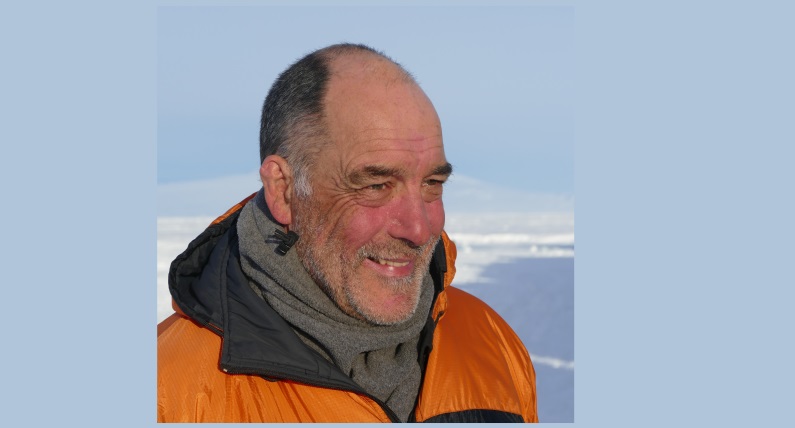
10 Questions with Blake McDavitt
With three decades of experience under his belt, Blake McDavitt is a familiar face to many people in New Zealand's search and rescue sector.
How long have you been involved in search and rescue?
This year marks 31 years since I first started in SAR. I initially joined the Turangi Land Search and Rescue group which I’m still a member of, even though I moved to Hawke’s Bay about five years back. I’m also still a member of RARO (Ruapehu Alpine Rescue Organisation) and occasionally get called out for alpine searches.
What’s your current role for SAR in New Zealand?
As well as being a volunteer with the Turangi group and RARO, I do some teaching for New Zealand Land Search and Rescue around the country. I was also the convenor of the Backcountry Technical Rescue Advisory Group (BTRAG), which represented the specialist groups within Land Search and Rescue.
What do you do during your work in Antarctica?
I’ve spent several seasons on the ice, most recently as the lead for Antarctica New Zealand’s sea ice work, and the lead field trainer. I oversaw a small team who delivered field training, including crevasse rescue and snowcraft, to the staff at Scott Base. I’ve also been a team leader for the Joint Antarctic Search and Rescue Team (JASART).
Can you tell us more about SAR on the ice?
Because of the severity of the conditions and logistical challenges, the SAR plans involve a lot of collaboration between nations which have a presence on the ice. JASART is made up of specialist staff from New Zealand’s Scott base and the United States’ McMurdo Station. If something goes wrong, survival times can be very short, so we are often deploying for seemingly minor things like a missed scheduled radio call. Being proactive helps stop things getting out of hand.
How do you prepare for the Antarctic Season?
In the lead up to each season, we do specific training in New Zealand’s Southern Alps. Antarctica isn’t just flat ice: there are serious moun-tains, huge glaciers and crevasse fields, so we need somewhere that is convenient to access, with all those features. The high country near Aoraki / Mt Cook is ideal for us to refresh our general polar skills as well as specific SAR techniques and procedures.
Is there a particular rescue that you’ll always remember?
The Mangetepopo canyon tragedy, where six students and a teacher died in 2008, is one that stands out. It’s quite sobering to reflect on the lives that those young people could have had, and that New Zealand has been denied the chance to see what they would have made of themselves.
Rescues like that are tough, mentally. Is there anything you do to manage your own wellbeing?
I take a lot of comfort from being able to bring someone home to their family. Sometimes it’s a good outcome and we can return someone safely. And if it’s not, knowing that I played a part in returning a person to their family so they can mourn and grieve helps me deal with it.
What do you do to relax in your downtime?
Backcountry recreation has always been my go to when it comes to relaxing or removing oneself from life’s pressures. We have great rivers in Hawke's Bay, so kayaking and fishing are always on the cards when time allows. It is always great to get back to the central North Island for some tramping and skiing, plus catching up with friends.
What’s next for you in SAR?
My involvement is much more of a strategic role these days. I’m at the stage where I take a lot of satisfaction from seeing the next generation of SAR leaders coming through. I still get called out occasionally but I’m very much enjoying being mostly in a training and mentoring role now.
What advice would you give someone wanting to get involved in search and rescue?
You need to look at the reasons why you want to be involved in SAR – are they the right reasons? It needs to be genuine and from the heart.
Antarctica New Zealand needs experienced and emerging field support staff in summer and winter, and expressions of interest are accepted all year round. Visit antarcticanz.govt.nz/jobs
his story was originally published in the December 2023 issue of Link magazine.
Feature Image: Blake McDavitt, supplied.
